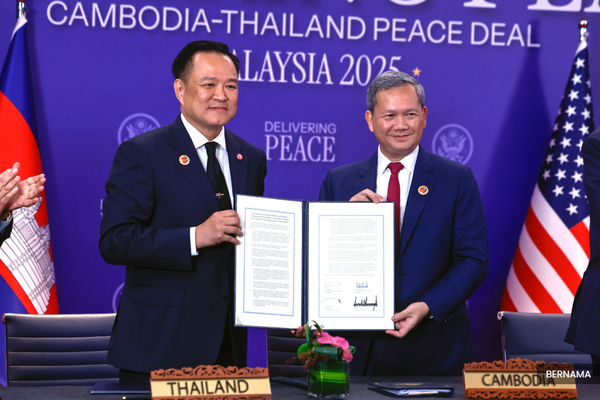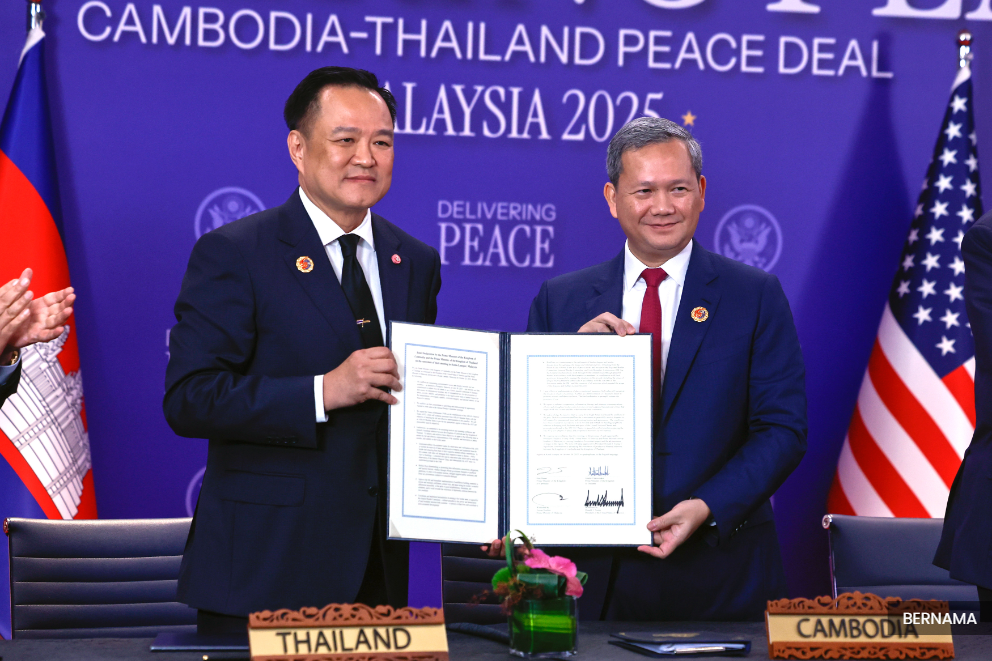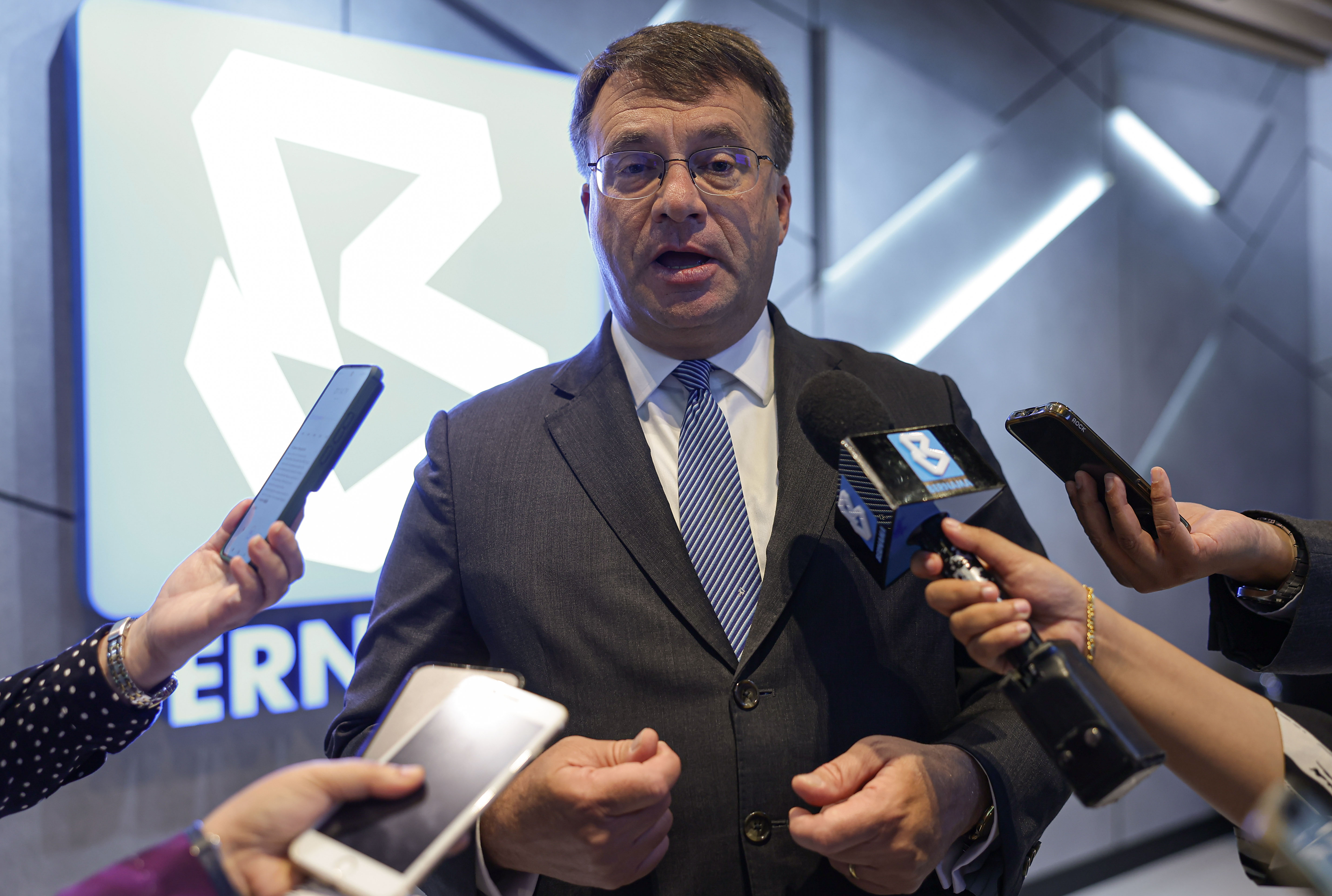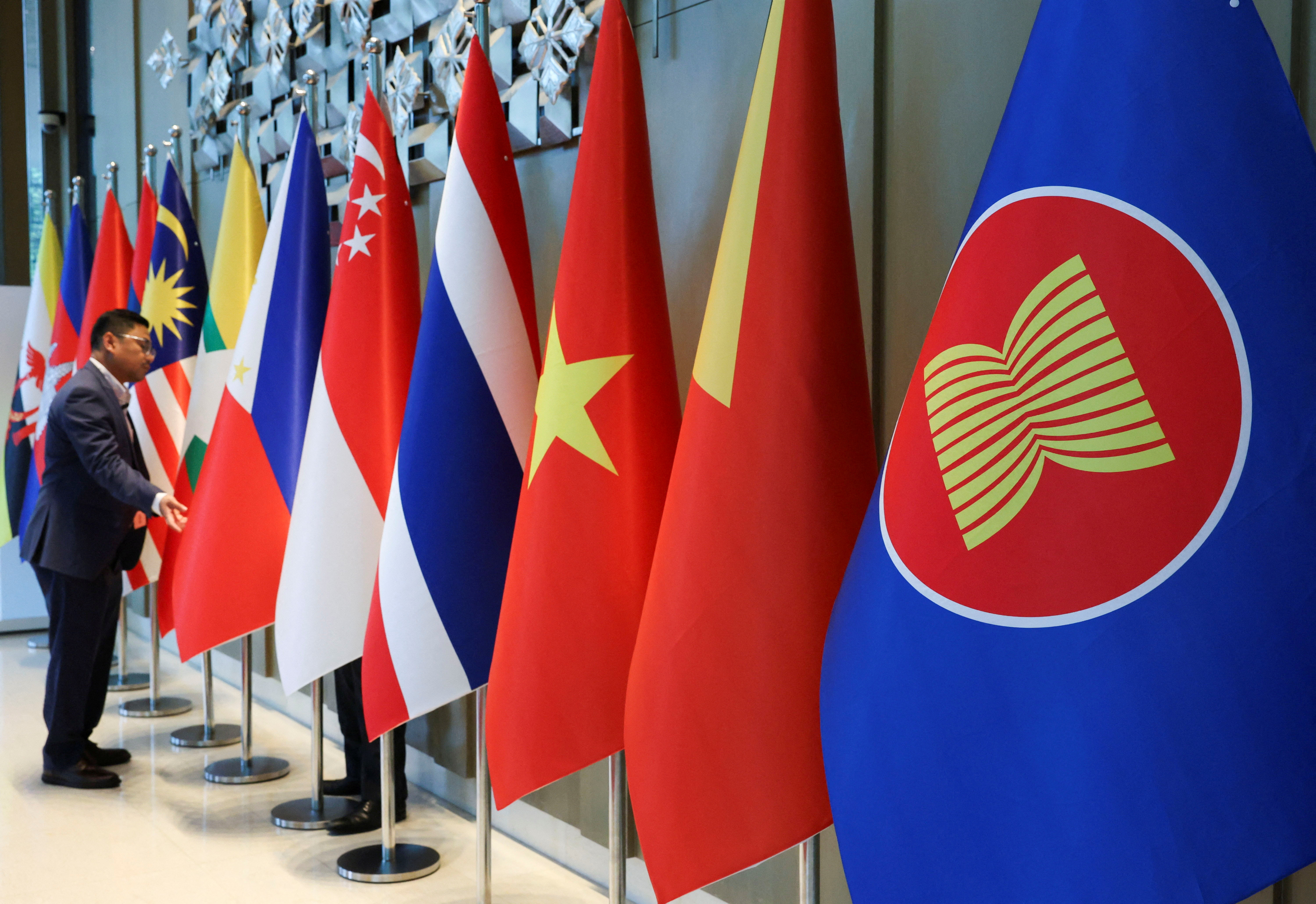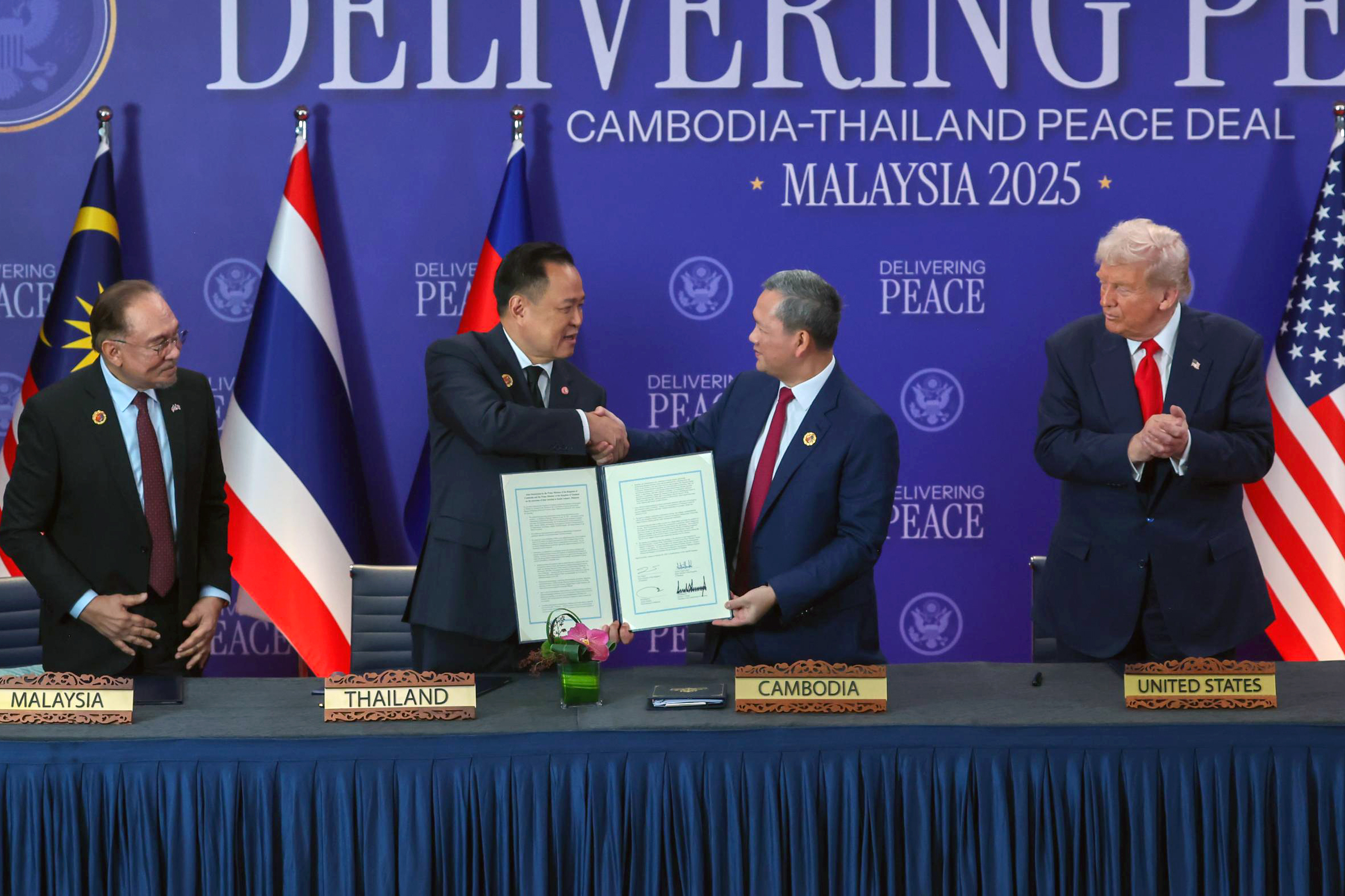KUALA LUMPUR, Nov 2 — The United States (US) is working to deepen its engagement with parties in the Kuala Lumpur Peace Accord between Thailand and Cambodia, aiming to strengthen cooperation and promote the peaceful resolution of differences.
US Ambassador to Malaysia Edgard D. Kagan said Washington’s efforts are focused on ensuring that the terms agreed upon by both sides are fully implemented.
“We have made it very clear to both sides, we expect them to fully implement the terms of the agreement, and encourage them to look for ways to resolve differences peacefully and make sure this kind of conflict never happens,” he said after appearing as a guest on a Bernama TV programme.
In a ceremony held on the sidelines of the 47th Asean Summit on October 27, Cambodia and Thailand signed the Kuala Lumpur Peace Accord, a historic ceasefire agreement brokered by Malaysia and facilitated by the US.
The agreement officially put an end to Cambodian-Thai hostility along their disputed border, paved the way for the solidification of long-term peace efforts, and fostered mutual trust between the two countries.
It was signed by Cambodian Prime Minister Hun Manet and his Thai counterpart Anutin Charnvirakul, while Prime Minister Datuk Seri Anwar Ibrahim and US President Donald Trump signed as witnesses.
Kagan added that this agreement highlighted US collaborative efforts with Malaysia to address regional conflicts and strengthen economic partnerships.
“We had a US negotiating team that was here having repeated discussions with the Thais and the Cambodians, as well as Malaysian counterparts.
“We saw an incredibly close partnership between the United States and Malaysia. I think it was actually eye-opening to both sides,” he said.
Cambodia and Thailand have long been in dispute over their 817-kilometre border, with recent tensions flaring into a military confrontation on July 24.
Following an intervention by Anwar as Asean chair, Malaysia hosted a meeting in Putrajaya between Manet and the then-acting Thai Prime Minister Phumtham Wechayachai on July 28, leading to a breakthrough that eased border tensions between the two neighbours.


